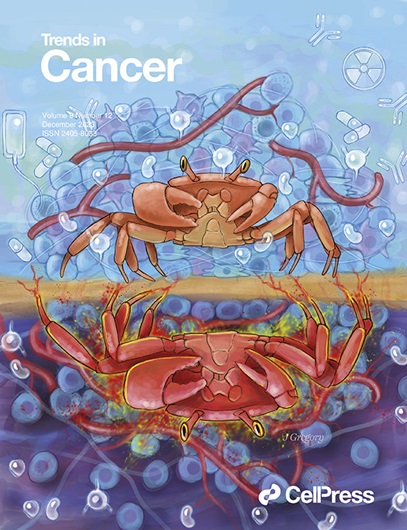IL-18可以激活功能失调的CAR-T细胞。
IF 17.5
1区 医学
Q1 ONCOLOGY
引用次数: 0
摘要
il -18装甲嵌合抗原受体(CAR)工程T细胞(18.CAR-T)在常规CAR-T治疗难治性淋巴瘤患者中显示出增强的抗肿瘤疗效。揭示这种有效增强和减轻相关毒性背后的机制可能开启下一代CAR-T疗法的新时代,这些疗法具有卓越的有效性和更广泛的临床影响。本文章由计算机程序翻译,如有差异,请以英文原文为准。
IL-18 revives dysfunctional CAR-T cells.
IL-18-armored chimeric antigen receptor (CAR)-engineered T (18.CAR-T) cells have demonstrated enhanced antitumor efficacy in lymphoma patients refractory to conventional CAR-T therapy. Unraveling the mechanisms behind this potent enhancement and mitigating associated toxicities could unlock a new era of next-generation CAR-T therapies with superior effectiveness and broader clinical impact.
求助全文
通过发布文献求助,成功后即可免费获取论文全文。
去求助
来源期刊

Trends in cancer
Medicine-Oncology
CiteScore
28.50
自引率
0.50%
发文量
138
期刊介绍:
Trends in Cancer, a part of the Trends review journals, delivers concise and engaging expert commentary on key research topics and cutting-edge advances in cancer discovery and medicine.
Trends in Cancer serves as a unique platform for multidisciplinary information, fostering discussion and education for scientists, clinicians, policy makers, and patients & advocates.Covering various aspects, it presents opportunities, challenges, and impacts of basic, translational, and clinical findings, industry R&D, technology, innovation, ethics, and cancer policy and funding in an authoritative yet reader-friendly format.
 求助内容:
求助内容: 应助结果提醒方式:
应助结果提醒方式:


